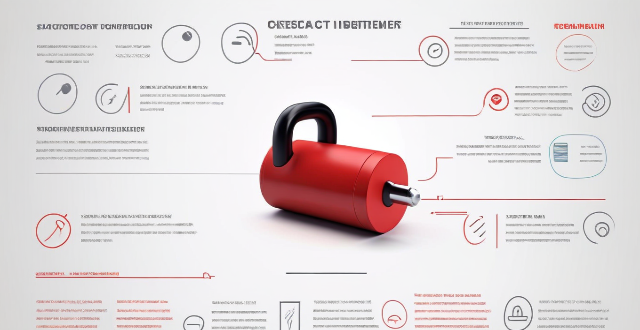Help Aerobic

Can aerobic exercise help me lose weight ?
Aerobic exercise, or cardio, is an effective way to lose weight. It increases heart rate and breathing, leading to higher calorie burn during and after the workout. Moderate-intensity aerobic activities also use fat as fuel, improving metabolic rate for further calorie expenditure at rest. Regular cardio can strengthen heart muscles for efficient blood pumping and contribute to muscle endurance. Types of aerobic exercises include running, cycling, swimming, walking, and group fitness classes like Zumba. To successfully incorporate aerobic exercise into a weight loss plan, it's recommended to start slowly, mix up activities, stay consistent, and combine with strength training. Potential challenges such as overexertion and plateaus in progress should be managed by adjusting routines. Overall, aerobic exercise can aid in weight loss when part of a balanced fitness regimen.

Is there a difference in sleep quality between aerobic and anaerobic exercise ?
Both aerobic and anaerobic exercises can improve sleep quality, but aerobic exercises are more consistently associated with better sleep duration, efficiency, and latency. Anaerobic exercises may also have benefits for sleep quality, but it is important to manage any potential negative effects such as muscle soreness and fatigue.

What are the benefits of aerobic exercise ?
Aerobic exercise, also known as "cardio," is a form of physical activity that increases your heart and breathing rate. It's any activity that keeps large muscles moving in a rhythmic manner for an extended period of time. Some examples include brisk walking, jogging, swimming, cycling, and dancing. The key benefits of aerobic exercise include improved heart health, weight management, boosted immune system, improved lung function, reduced stress, improved sleep, boosted mood, increased brain volume, slowed age-related cognitive decline, improved stamina, enhanced bone health, and promoted longevity. Incorporating aerobic exercise into your lifestyle can greatly improve your quality of life.

Can aerobic exercise improve my cardiovascular health ?
Aerobic exercise is essential for maintaining and improving cardiovascular health, offering benefits such as strengthened heart muscle, lowered blood pressure, increased HDL cholesterol, reduced inflammation, weight management, improved circulation, and better blood sugar regulation. Regular aerobic activities like walking, jogging, cycling, swimming, or group fitness classes can significantly enhance overall heart health. The American Heart Association recommends at least 150 minutes of moderate-intensity aerobic exercise weekly, spread throughout the week, to achieve these benefits.

What are some examples of aerobic exercises ?
Aerobic exercises are physical activities that increase heart rate and breathing to deliver more oxygen to muscles, improving cardiovascular health, burning calories, and reducing chronic disease risk. Examples include using cardiovascular machines like treadmills and elliptical trainers, outdoor activities such as running and cycling, group fitness classes including aerobic dance and spinning, sports like basketball and tennis, and low-impact options like brisk walking and water aerobics. Benefits encompass improved heart health, weight management, increased stamina, mental health enhancement, and immunity boost. Safety precautions include consulting a healthcare professional, proper warm-up and cool-down, staying hydrated, and listening to your body to avoid overexertion.

How does aerobic exercise impact lung capacity and function ?
Aerobic exercise can increase lung capacity and improve lung function by strengthening the muscles used for breathing, stimulating the respiratory system, and increasing gas exchange efficiency. Regular aerobic exercise can also reduce the risk of respiratory diseases, improve immune function, and reduce inflammation in the airways.

How often should I do aerobic exercise to see results ?
Aerobic exercise is an excellent way to improve your cardiovascular health, increase endurance, and burn calories. The frequency with which you should do aerobic exercise to see results depends on several factors, including your fitness level, goals, and overall health. If you are just starting out, it's recommended to do aerobic exercise three to four times a week for 20-30 minutes each session. As you become more comfortable with the activity, you can gradually increase the duration and frequency of your workouts. If your goal is to lose weight or improve your overall health, doing aerobic exercise three to five times a week for 30-60 minutes each session is recommended. If your goal is to increase endurance or compete in an athletic event, you may need to do aerobic exercise six or seven times a week for 45-90 minutes each session. It's important to listen to your body and avoid overtraining to prevent injury and burnout.

Are there any risks associated with aerobic exercise ?
Aerobic exercise, also known as cardio, is a popular form of physical activity that involves increasing your heart rate and breathing hard for an extended period of time. While aerobic exercise has numerous health benefits, it is important to be aware of the potential risks associated with this type of exercise. In this article, we will discuss some of the risks associated with aerobic exercise and how to minimize them. Overexertion is one of the most common risks associated with aerobic exercise. To avoid overexertion, it is essential to start slowly and gradually increase the intensity and duration of your workouts. Another risk associated with aerobic exercise is the potential for injuries. To reduce the risk of injury, it is important to wear appropriate footwear and clothing, warm up before exercising, and use proper form and technique when performing exercises. Dehydration is another risk associated with aerobic exercise. To prevent dehydration, it is important to drink plenty of water before, during, and after your workouts. While rare, cardiovascular events such as heart attacks and strokes can occur during aerobic exercise. To minimize the risk of cardiovascular events, it is important to undergo a thorough medical evaluation before starting an aerobic exercise program.

How can I incorporate aerobic exercise into my daily routine ?
Incorporating aerobic exercise into your daily routine can improve cardiovascular health, burn calories, and enhance mood and energy levels. Here are ways to seamlessly incorporate aerobic exercise into your day: 1. **Morning Vigor**: Start the day with activities like jogging, cycling, or jump roping. 2. **Lunch Break Activities**: Use your lunch break for stair climbing, walking meetings, or yoga. 3. **Post-Work Energy Booster**: After work, engage in gym sessions, outdoor sports, or dancing. 4. **Evening Wind-Down**: Before bedtime, consider gentle exercises like evening walks, Tai Chi, or swimming. 5. **Weekend Adventures**: On weekends, engage in longer duration exercises like hiking, biking, or water sports. 6. **Lifestyle Integration**: Make aerobic exercise a habit by commuting actively, doing active errands, or using fitness trackers.

How often should seniors engage in aerobic activities for heart health ?
Engaging in regular aerobic activities is crucial for seniors to maintain heart health and overall well-being. The American Heart Association recommends at least 150 minutes of moderate-intensity or 75 minutes of vigorous-intensity aerobic activity per week, spread throughout the week. For seniors, this could include brisk walking, swimming, or biking for at least 30 minutes five days a week (moderate intensity) or running and fast cycling for at least 25 minutes three days a week (vigorous intensity), depending on their capability and medical restrictions. Regular aerobic activity offers numerous benefits for seniors, including improved cardiovascular fitness, better blood pressure and cholesterol levels, weight management, increased muscular strength and endurance, and boosted mental health. However, safety precautions should be taken, such as consulting with a healthcare provider before starting an exercise program, starting slowly, choosing low-impact exercises, staying hydrated, wearing appropriate clothing and footwear, and monitoring bodily responses to the activity. By following these guidelines and taking necessary precautions, seniors can significantly improve their quality of life and maintain their independence longer.

How does exercise impact the prevention and management of type 2 diabetes ?
Exercise is important to prevent and manage type 2 diabetes. It improves insulin sensitivity, reduces blood sugar levels, and promotes weight loss. Regular physical activity can help prevent type 2 diabetes by improving the body's ability to use glucose for energy and reducing visceral fat. To prevent type 2 diabetes, adults should aim for at least 150 minutes of moderate-intensity aerobic exercise per week or 75 minutes of vigorous-intensity aerobic exercise per week. For managing type 2 diabetes, it is recommended that people engage in at least 150 minutes of moderate-intensity aerobic exercise per week or 75 minutes of vigorous-intensity aerobic exercise per week. Strength training exercises should also be included at least twice per week.

How long should my aerobic workouts be ?
Aerobic exercises, or cardio workouts, are vital for overall health and fitness. The American Heart Association recommends at least 150 minutes of moderate-intensity activity or 75 minutes of vigorous activity per week. This can be broken down into shorter sessions throughout the day. Starting slow and gradually increasing duration and intensity is advised. Mixing up activities helps prevent injury and keeps workouts interesting. Benefits include improved cardiovascular health, weight management, mood enhancement, and a stronger immune system. Always consult with a healthcare professional before starting any new exercise regimen.

What kind of equipment do I need for aerobic exercise ?
To get started with aerobic exercise, you will need comfortable clothing, supportive shoes, a heart rate monitor (optional), water bottle, and a towel (optional).

Is it better to do aerobic exercise in the morning or evening ?
The best time to do aerobic exercise depends on your personal preferences, schedule, and individual needs. Morning exercise can boost metabolism, improve mental clarity, and increase energy levels, but it may also be challenging to wake up early enough and could lead to lower performance and joint stiffness. Evening exercise can reduce stress, improve flexibility, and promote relaxation, but it may interfere with sleep, have time constraints, and cause fatigue. It's essential to listen to your body and choose a time that works best for you while maintaining consistency in your fitness routine.

How much exercise is needed per week to prevent chronic disease ?
Chronic diseases are a major cause of death and disability worldwide. Regular physical activity can help reduce the risk of developing chronic diseases such as heart disease, diabetes, and some types of cancer. According to the World Health Organization (WHO), adults should aim to do at least 150 minutes of moderate-intensity aerobic exercise or 75 minutes of vigorous-intensity aerobic exercise each week, along with muscle-strengthening activities at least twice a week. However, the amount of exercise needed to prevent chronic diseases may vary depending on individual factors such as age, sex, body weight, and overall health status. It's recommended that people try to incorporate at least 30 minutes of moderate-intensity aerobic exercise into their daily routine, along with strength training exercises whenever possible.

Is there a specific type of exercise that is most effective for enhancing cognitive abilities ?
Exercise has been shown to have numerous benefits on cognitive abilities, but is there a specific type of exercise that is most effective? Aerobic exercise improves blood flow and reduces stress, while resistance training boosts BDNF levels and enhances executive function. Combination exercises provide a comprehensive workout for the body and brain. Finding an exercise routine that you enjoy and can stick to is key to reaping the cognitive benefits over time.

Heart and lungs are better, healthier and longer, which can promote the exercise of heart and lung function

Is it true that exercise can help manage chronic pain conditions ?
Exercise can help manage chronic pain conditions by reducing pain intensity, improving physical function, enhancing quality of life, and increasing energy levels. It is important to consult with a healthcare professional before starting any exercise program and to start slowly, gradually increasing intensity over time while listening to your body's responses.

How much exercise do I need to do to manage my stress effectively ?
Managing stress through exercise is a crucial aspect of maintaining overall health and well-being. The ideal amount of exercise for stress management, as per the American Heart Association, is 150 minutes of moderate-intensity aerobic activity or 75 minutes of vigorous aerobic activity weekly, along with muscle-strengthening activities involving all major muscle groups at least twice a week. Different types of exercises such as aerobic exercises, strength training, flexibility exercises, and mind-body exercises can contribute to stress relief. When creating an exercise routine, it's important to start slow, choose enjoyable activities, mix up different types of exercises, set realistic goals, and make it a habit. Consistency is key in managing stress through exercise.

Can exercise help manage symptoms of ADHD ?
Exercise can be a powerful tool in managing symptoms of ADHD by improving focus, reducing impulsivity, increasing energy levels, and promoting better sleep. Choosing the right type of exercise, setting realistic goals, and creating a consistent routine are essential for reaping the full benefits of physical activity for ADHD management.

Can regular physical activity help in reducing stress and anxiety ?
Regular physical activity can help reduce stress and anxiety by promoting the release of endorphins, improving sleep quality, and boosting self-esteem. Aerobic exercises like running, swimming, or cycling are particularly effective because they increase heart rate and circulation, leading to improved oxygenation of the brain. Yoga and tai chi focus on breathing and relaxation techniques that can also help reduce stress and anxiety. The American Heart Association recommends at least 150 minutes of moderate-intensity aerobic exercise or 75 minutes of vigorous-intensity aerobic exercise per week for adults. Finding an exercise routine that works for you and that you enjoy is key to sticking with it over time.

What role does exercise play in maintaining cognitive function in old age ?
Exercise is crucial for maintaining cognitive function in old age, with benefits including improved blood flow, reduced inflammation, and increased neuroplasticity. Aerobic exercise, resistance training, and activities like yoga and tai chi are all beneficial. Incorporating physical activity into your daily routine can help keep your mind sharp as you age.

Are there specific exercises that help improve mental health ?
Exercises like yoga, meditation, aerobic exercise, resistance training, MBSR, and Tai Chi can help improve mental health by reducing stress, anxiety, and depression symptoms while promoting relaxation, self-awareness, and social interaction.

Are there any specific types of exercises that are more effective for stress relief ?
There are several types of exercises that have been shown to be particularly effective for reducing stress and promoting relaxation, including aerobic exercise, yoga, tai chi, resistance training, and meditation. These activities can help to release endorphins, improve cardiovascular health, increase flexibility and strength, provide a sense of accomplishment, and quiet the mind, all of which can contribute to lower stress levels and improved mental well-being.

How does sports medicine help prevent injuries in sports ?
The text discusses how sports medicine helps in preventing injuries in sports by providing athletes with necessary knowledge, skills, and resources for maintaining their health and safety. It outlines key ways such as pre-participation physical examinations, proper warm-ups, strength training programs, correct technique, injury management, and education. These measures aim to identify risks, prepare the body for exercise, enhance fitness levels, promote safe practices, and manage injuries effectively. Overall, sports medicine plays a vital role in fostering a culture of safety and well-being within sports communities.

What are some effective warm-up routines for preventing sports injuries ?
Effective Warm-Up Routines for Preventing Sports Injuries: A proper warm-up routine prepares your body for the demands of the sport or exercise by increasing blood flow, raising your heart rate, and loosening up your muscles and joints. Dynamic stretching, light aerobic exercise, sports-specific movements, foam rolling, and cooling down are effective warm-up routines that can help prevent sports injuries.

How much exercise is needed to improve sleep ?
The text discusses the importance of regular physical activity in improving sleep quality. It highlights how exercise can lead to better sleep patterns, faster sleep onset, deeper sleep, and improved sleep efficiency. The amount of exercise needed varies depending on individual factors, but general guidelines suggest at least 150 minutes of moderate-intensity aerobic exercise per week. Even small amounts of physical activity can have positive effects on sleep. Various types of exercise, including aerobic exercises, resistance training, yoga, and Pilates, can contribute to improved sleep quality. Timing your exercise sessions appropriately is crucial for maximizing their benefits for sleep improvement. Consistency is key when it comes to reaping the benefits of exercise on sleep quality.

Can regular exercise help with insomnia ?
Insomnia, a sleep disorder making it hard to fall or stay asleep, affects many. Regular exercise is emerging as a natural remedy for insomnia. Exercise can positively impact sleep quality and duration by regulating the circadian rhythm and releasing endorphins. It also reduces stress and anxiety, leading causes of insomnia. Regular exercise boosts energy levels and mental health, further promoting better sleep. The recommended amount is 150 minutes of moderate-intensity activity weekly, including muscle-strengthening exercises. Tips for exercising with insomnia include choosing low-impact activities, avoiding high-intensity workouts at night, establishing a routine, being mindful of caffeine intake, and consulting a doctor before starting an exercise program.

How does exercise physiology help in preventing sports injuries ?
Exercise physiology helps prevent sports injuries by understanding body mechanics, energy systems, and recovery needs. Athletes can reduce injury risk through proper warm-up/cool-down, cross-training, progressive overload, and sufficient recovery time.

Are there any foods that can help alleviate stress ?
The text provides a summary of foods that can help alleviate stress, including dark chocolate, avocado, blueberries, salmon, and chamomile tea. Each food is explained in terms of its benefits and recommended intake. The article emphasizes that while these foods may help reduce stress levels, they should not be used as a substitute for professional medical advice or treatment.